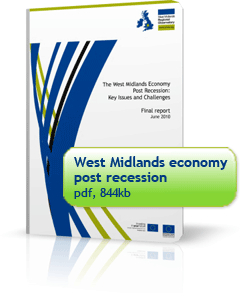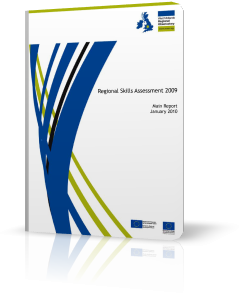At its launch last month, the 3% campaign – developed by the Young People’s Enterprise Centre of Expertise – outlined its ambitious aim to create 5,000 young entrepreneurs by 2012.
The campaign, backed by Advantage West Midlands and Business Voice WM, was based on research highlighting a number of barriers young people face when it comes to starting a business and accessing support in the West Midlands.
The research found that:
- Relatively small amounts of funding can be instrumental in enabling young people to start productive businesses, but there is a gap in provision for those who do not meet the Prince’s Trust deprivation criteria or those not on student enterprise schemes.
- Young entrepreneurs have short work histories and require business advisers and mentors who have relevant business experience to provide essential knowledge.
- Young entrepreneurs highlighted the loneliness of working on their own when starting a business and the need for a pro-active support network.
- Application forms for support are perceived as excessively bureaucratic and jargon-laden, deterring young entrepreneurs not familiar with the terminology and business.
- Although a culture change is reported, many of our young skilled entrepreneurs are entirely disengaged from school.
- Enterprise activities in schools are highly valued and supported, with the emphasis on getting young entrepreneurs involved in the Further Education sector.
Filed under: Economy & Labour Force, Employment, Enterprise, West Midlands | Tagged: 3% campaign, business, Enterprise, entrepreneur, think enterprise, young people, Young people's enterprise centre of expertise, YPCOE | Leave a comment »




 The latest survey results from the region’s Chambers of Commerce point to a further worsening of the business environment.
The latest survey results from the region’s Chambers of Commerce point to a further worsening of the business environment. According to a student briefing recently issued by the
According to a student briefing recently issued by the  We receive a number of enquiries through our
We receive a number of enquiries through our  The last month has seen the launch of a new business service from the Observatory. We now have an online directory of organisations and websites who will support SMEs in all aspects of e-business adoption. If your business hasn’t yet got any e-business capability or is looking to broaden or expand existing capability then you will find in it things to help increase your competitiveness and profits.
The last month has seen the launch of a new business service from the Observatory. We now have an online directory of organisations and websites who will support SMEs in all aspects of e-business adoption. If your business hasn’t yet got any e-business capability or is looking to broaden or expand existing capability then you will find in it things to help increase your competitiveness and profits.

